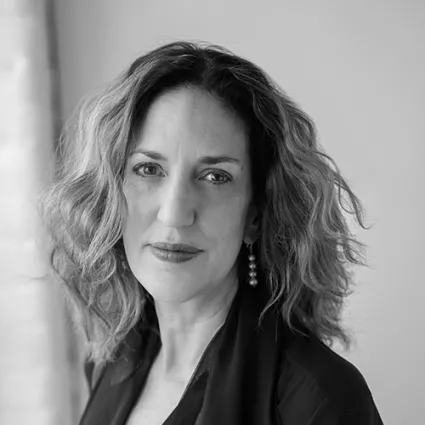Darcy Buerkle
Professor of History

Biography
Darcy Buerkle is Professor of History at Smith College; she served as chair of the department from 2018 to 2021. She held the Walter Benjamin Chair in German Jewish History and Culture at the Humboldt University-Berlin and is the current chair of Jewish studies at Smith. Professor Buerkle was an elected member of Smith’s Faculty Council (2020–24) and its chair in 2023–24. In 2025 she begins a three-year term as a member of Smith’s Committee on Academic Priorities (CAP).
Buerkle has been honored with two teaching awards granted by the Student Government Association at Smith. Her typical course offerings include surveys in European women's and gender history (HST 152 and HST 153), in addition to a range of colloquia and seminars such as Memory and History (HST 246), topical colloquia such as Recent Historiographic Debates in Gender and Sexuality (HST 286) and Gender and the Archive (HST 290). She teaches advanced seminars (HST 350 and HST 355) in which recent topics include The Aftermath of War, Gender and the Holocaust, Blackness in Europe and Histories of Humanitarianism. In Spring 2026, she will teach the new required methods course in the major, HST250.
Professor Buerkle’s research focuses on modern European women's and gender history with an emphasis on German and German Jewish women's intellectual and cultural history. She has worked extensively on the history of emotion and German visual culture of the early 20th century, publishing a range of essays in her field, as well as pieces that reflect on teaching at Smith College. Her first book, Nothing Happened: Charlotte Salomon and an Archive of Suicide, was published by the University of Michigan Press in 2014; a co-edited volume, Contemporary Europe in the Historical Imagination, was published by the University of Wisconsin Press in 2023. Her forthcoming book on director Fred Zinnemann’s cinema, The Search at High Noon, reframes Zinnemann’s cinematic oeuvre as deeply engaged with the historical moment, and Jewish experiences specifically. Her new project, “Surgeons of Democracy,” charts women’s contributions to the question of post-WWII conceptualizations of German guilt, moral injury and the related matters of retribution, and redress through democratic education. In this project, Professor Buerkle is especially interested in Black and Jewish women’s work toward democracy, and the possibility of reconciliation and related political action.